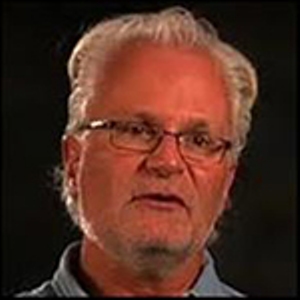The Formative Assessment Systems for ATE project (FAS4ATE) focuses on assessment practices that serve the ongoing evaluation needs of projects and centers. Determining these information needs and organizing data collection activities is a complex and demanding task, and we’ve used logic models as a way to map them out. Over the next five weeks, we offer a series of blog posts that provide examples and suggestions of how you can make formative assessment part of your ATE efforts. – Arlen Gullickson, PI, FAS4ATE
Week 5 – How am I supposed to keep track of all this information?
I’ve been involved in NSF center and project work for over 17 years now. When it comes to keeping track of information from meetings, having a place to store evaluation data, and tracking project progress, there are a few habits and apps I’ve found particularly useful.
Habit: backing up my files
All the apps I use are cloud-based, so I can access my files anywhere, anytime, with any device. However, I also use Apple’s Time Machine to automatically back up my entire system on a daily basis to an external hard drive. I also have three cloud-based storage accounts (Dropbox, Google Drive, and Amazon Cloud Drive). When the FAS4ATE files on Dropbox were accidentally deleted last year, I could upload my backup copy and we recovered everything with relative ease.
Habit + App: Keeping track of notes with Evernote
I’ve been using Evernote since the beta was released in 2008 and absolutely love it. If you’ve been in a meeting with me and you’ve seen me typing away – I’m not emailing or tweeting – I’m taking meeting notes using Evernote. Notes can include anything: text, pictures, web links, voice memos, etc., and you can attach things like word documents, spreadsheets, etc. Notes are organized in folders and are archived and searchable from any connected devices. There are versions available for all of the popular operating systems and devices, and notes can easily be shared among users. If it’s a weekend and I’m five miles off the coast fishing and you call me about a meeting we had seven years ago, guess what? With a few clicks I can do a search from my phone, find those notes, and send them to you in a matter of seconds. Evernote has both a free, limited version and inexpensive, paid version.
App: LucidChart
When we first started with the FAS4ATE project, we thought we’d be developing our own cloud-based logic model dashboard-type app. We decided to start by looking at what was out there, so we investigated lots of project management apps like Basecamp. We tried to force Evernote into a logic model format; we liked DoView. However, at this time we’ve decided to go with LucidChart. LucidChart is a web-based diagramming app that runs in a browser and allows multiple users to collaborate and work together in real time. The app allows in-editor chat, comments, and video chat. It is fully integrated with Google Drive and Microsoft Office 2013 and right now appears to be our best option for collaborative (evaluator, PI, etc.) logic model work. You may have seen this short video logic model demonstration.
As we further develop our logic model-based dashboard, we’ll be looking for centers and projects to pilot it. If you are interested in learning more about being a pilot site, contact us by emailing Amy Gullickson, one of our co-PIs, at amy.gullickson@unimelb.edu.au. We’d love to work with you!

Except where noted, all content on this website is licensed under a Creative Commons Attribution-NonCommercial-ShareAlike 4.0 International License.






 EvaluATE is supported by the National Science Foundation under grant number 2332143. Any opinions, findings, and conclusions or recommendations expressed on this site are those of the authors and do not necessarily reflect the views of the National Science Foundation.
EvaluATE is supported by the National Science Foundation under grant number 2332143. Any opinions, findings, and conclusions or recommendations expressed on this site are those of the authors and do not necessarily reflect the views of the National Science Foundation.